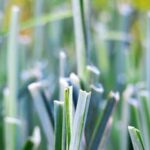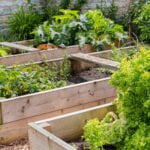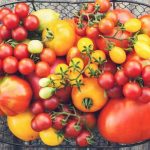Mulch plays a crucial role in the success of vegetable gardens, serving as a protective barrier that offers a myriad of benefits. From retaining moisture to suppressing weeds and regulating soil temperature, the right mulch can significantly enhance the health and yield of your crops. In this article, we explore what mulch is good for vegetable gardens and how you can select the most suitable option for your specific gardening needs.
Choosing the right mulch is essential, as different types offer varying advantages. Organic options like straw, compost, and grass clippings provide nutrients to the soil as they break down, while inorganic choices such as plastic or landscape fabric offer long-lasting weed suppression. Understanding the climate, soil type, and types of vegetables you are growing is crucial when determining which mulch will best support your garden’s growth.
Proper application of mulch is key to reaping its benefits without harming your plants. Maintaining the correct thickness, avoiding contact with plant stems to prevent rot and disease, and replenishing mulch as needed are all critical factors to consider. By delving into the world of mulch for vegetable gardens, you can unlock the potential for healthier plants and bountiful harvests in your own backyard oasis.
Benefits of Using Mulch in Vegetable Gardens
Mulch is a crucial component in maintaining a healthy vegetable garden, offering numerous benefits for plant growth and overall garden health. One of the key advantages of using mulch in vegetable gardens is its ability to retain moisture in the soil. By covering the soil with mulch, evaporation is reduced, helping to ensure that plants have a constant water supply even during hot and dry periods. This can be especially beneficial for vegetables that require consistent moisture levels to thrive.
In addition to moisture retention, mulch also plays a vital role in suppressing weeds within the vegetable garden. Weeds compete with vegetables for essential nutrients, water, and sunlight, which can hinder their growth and productivity. By applying a layer of mulch, weed seeds are blocked from reaching the soil surface and germinating. This not only reduces manual weeding efforts but also helps to maintain a clean and tidy garden space.
Furthermore, mulch assists in regulating soil temperature in vegetable gardens. During extreme weather conditions such as heatwaves or frost, mulch acts as an insulating barrier between the soil and the atmosphere. This helps to moderate soil temperatures, protecting plant roots from stress or damage caused by temperature fluctuations. Overall, incorporating mulch into your vegetable garden not only promotes healthy plant growth but also simplifies maintenance tasks such as watering and weeding.
| Benefits of Using Mulch | In Vegetable Gardens |
|---|---|
| Retaining Moisture | Mulching helps reduce evaporation and keeps plants hydrated. |
| Suppressing Weeds | Mulch prevents weed growth by blocking sunlight from reaching weed seeds. |
| Regulating Soil Temperature | Mulch acts as an insulator, protecting plant roots from extreme temperatures. |
Types of Mulch Suitable for Vegetable Gardens
Organic mulch is an excellent choice for vegetable gardens as it not only provides a protective layer to the soil but also enriches it over time. One of the most popular types of organic mulch for vegetable gardens is straw.
Straw helps retain moisture in the soil, suppresses weeds, and gradually breaks down to add nutrients to the earth. Another common organic mulch option is compost, which not only serves as a nutrient-rich covering but also promotes healthy soil microbial activity.
Grass clippings are another beneficial organic mulch choice for vegetable gardens. When layering grass clippings as mulch, it is essential to ensure that they are spread thinly to prevent matting and facilitate air circulation. This type of mulch can help with weed suppression and moisture retention while providing valuable nutrients to the soil as it decomposes.
In contrast, inorganic mulches like plastic and landscape fabric offer different benefits for vegetable gardens. Plastic mulch warms the soil more quickly in spring, extends the growing season, and can help with weed control. On the other hand, landscape fabric allows water and air penetration while preventing weed growth in vegetable beds. Understanding the specific needs of your vegetable garden will help you determine what kind of mulch is best suited for your crops and gardening practices.
| Organic Mulch Options | Inorganic Mulch Options |
|---|---|
| Straw | Plastic |
| Compost | Landscape Fabric |
| Grass Clippings |
Criteria for Selecting the Best Mulch for Your Vegetable Garden
When it comes to choosing the best mulch for your vegetable garden, it is essential to consider various factors such as the climate of your region, the type of soil you have, and the specific vegetable crops you are growing. Each of these elements can have a significant impact on the effectiveness of the mulch in your garden.
Climate
The climate plays a crucial role in determining which type of mulch would be most suitable for your vegetable garden. In hot and arid regions, organic mulches like straw or compost can help retain moisture in the soil and regulate temperature. On the other hand, in cooler climates, dark-colored plastic mulch or landscape fabric may be more appropriate for warming up the soil and extending the growing season.
Soil Type
The composition of your soil can also influence the choice of mulch for your vegetable garden. Sandy soils drain quickly and may benefit from organic mulches that help retain moisture. In contrast, clay soils hold water well but can become compacted, so a lighter mulch like straw or grass clippings can improve aeration and drainage.
Vegetable Crops Being Grown
Different vegetable crops have varying requirements when it comes to mulch. For example, root vegetables like carrots or potatoes may prefer a loose organic mulch like leaves or wood chips to allow easy root penetration. Leafy greens such as lettuce or spinach could benefit from a light layer of straw to keep their foliage clean and dry. Understanding the needs of each crop will help you select the most suitable mulch for your vegetable garden.
By taking into account the climate, soil type, and specific vegetable crops being grown in your garden, you can make an informed decision on what type of mulch is best suited for your needs. Experimenting with different options and observing how they affect your plants can also provide valuable insights into maximizing the benefits of using mulch in your vegetable garden.
How to Apply Mulch in Vegetable Gardens
When it comes to using mulch in vegetable gardens, proper application is key to maximizing its benefits. Here are some essential tips on how to apply mulch effectively:
- Proper Thickness: One of the most crucial aspects of applying mulch is getting the right thickness. For vegetable gardens, a layer of 2-4 inches of mulch is typically recommended. This thickness helps retain moisture, suppress weeds, and regulate soil temperature effectively.
- Avoiding Mulch Contact With Plant Stems: It’s essential to ensure that your mulch doesn’t come in direct contact with the stems of your vegetable plants. Mulch piled against plant stems can lead to moisture-related issues, pest infestations, and diseases. Leave a small gap around each plant to prevent this problem.
- Replenishing Mulch as Needed: Over time, organic mulches like straw or compost decompose and break down. It’s important to replenish your mulch layer periodically to maintain its effectiveness. Check the thickness regularly and add more mulch as needed to keep your vegetable garden well-protected.
By following these guidelines for applying mulch in your vegetable garden, you can ensure that your plants thrive and produce a bountiful harvest. Properly applied mulch not only improves soil health but also reduces maintenance tasks such as weeding and watering. Remember to consider the specific needs of your vegetable crops when selecting and applying mulch for optimal results.
Overall, taking the time to apply mulch correctly will pay off in healthier plants, increased yields, and a more manageable garden environment. So don’t overlook this critical aspect of gardening – what mulch is good for vegetable gardens makes a significant difference in the success of your harvests. Follow these tips for applying mulch in your vegetable garden, and enjoy the many benefits it brings.
Common Mistakes to Avoid When Using Mulch in Vegetable Gardens
Over-Mulching
One common mistake to avoid when using mulch in vegetable gardens is over-mulching. While mulch provides numerous benefits, excessive amounts can actually harm your plants. Over-mulching can lead to waterlogged soil, reduced oxygen levels in the root zone, and even create a breeding ground for pests and diseases. It’s important to follow guidelines for proper mulch thickness to prevent these issues and ensure the health of your vegetable garden.
Using the Wrong Type of Mulch
Another mistake that gardeners often make is using the wrong type of mulch for their vegetable gardens. Not all mulches are created equal, and certain types may not be suitable for specific crops or climates. For example, using plastic mulch in a hot climate can raise soil temperatures too high for some vegetables to thrive. Understanding the characteristics of different mulch materials and selecting the appropriate one based on your location and crop selection is essential for success.
Neglecting to Check Moisture Levels
Neglecting to check moisture levels in your vegetable garden when using mulch can also be a detrimental mistake. While mulch helps retain moisture in the soil, it’s important to monitor conditions regularly to ensure that your plants are receiving an adequate amount of water.
Depending on factors such as weather patterns and plant requirements, you may need to adjust your watering schedule or mulch thickness accordingly. By staying vigilant and responsive to moisture levels, you can avoid issues such as overwatering or underwatering that may arise from neglecting this crucial aspect of gardening.
Case Studies or Success Stories of Vegetable Gardens Using Specific Mulch Types
When it comes to selecting the right mulch for your vegetable garden, hearing from experienced gardeners and farmers can provide valuable insights. One common type of organic mulch that many successful vegetable gardens utilize is straw. Straw mulch helps retain moisture in the soil, suppress weeds, and regulate soil temperature – all important factors for promoting healthy plant growth. Additionally, straw breaks down over time, adding valuable nutrients back into the soil for your vegetable crops.
Another popular option for mulching in vegetable gardens is compost. Compost not only serves as a nutrient-rich layer for your plants but also helps improve soil structure and promote beneficial microbial activity. Many experienced gardeners swear by compost as their go-to mulch for vegetables due to its multiple benefits. By incorporating compost into your gardening routine, you can create a healthy and thriving environment for your vegetable plants to thrive.
In addition to organic options like straw and compost, some vegetable gardens find success using landscape fabric as an inorganic mulch choice. Landscape fabric can help suppress weeds effectively while still allowing water and air to reach the roots of your plants.
By laying down landscape fabric in between rows of vegetables, you can create a weed-free environment that promotes optimal growing conditions for your crops. It’s essential to consider all these factors when choosing the right mulch for your vegetable garden to ensure a bountiful harvest at the end of the season.
Conclusion
In conclusion, choosing the right mulch for your vegetable garden is essential to promoting healthy plant growth and increasing overall yields. Organic mulches such as straw, compost, and grass clippings provide numerous benefits such as retaining moisture, suppressing weeds, and regulating soil temperature. On the other hand, inorganic mulches like plastic or landscape fabric can also be effective in certain situations.
When considering what mulch is good for vegetable gardens, it is important to take into account factors such as climate, soil type, and the specific vegetable crops being grown. By selecting the appropriate mulch for your garden’s unique needs, you can create an optimal environment for your plants to thrive. Remember to apply the mulch at the proper thickness, avoid contact with plant stems, and replenish as needed to maintain its effectiveness.
In order to achieve successful results with mulching in your vegetable garden, it is crucial to avoid common mistakes such as over-mulching, using the wrong type of mulch, or neglecting to monitor moisture levels. By learning from the experiences of seasoned gardeners or farmers who have implemented various mulching techniques, you can gain valuable insights and improve your own gardening practices.
Overall, incorporating mulch in your vegetable garden routine can lead to healthier plants, increased yields, and a more sustainable growing environment.
Frequently Asked Questions
What Is Best Mulch for Vegetable Garden?
The best mulch for a vegetable garden is organic mulch like straw, grass clippings, or shredded leaves. These types of mulch help retain moisture, suppress weeds, and enrich the soil as they break down.
Can You Use Bagged Mulch in Vegetable Garden?
Yes, you can use bagged mulch in a vegetable garden as long as it is organic and free of any harmful chemicals. Bagged mulch such as wood chips or shredded bark can be effective in retaining moisture and regulating soil temperature.
What Kind of Mulch Is Best for Tomato Plants?
The best kind of mulch for tomato plants is organic mulch like straw or grass clippings. These types of mulch help prevent soil-borne diseases by reducing splash back onto the plant leaves and keeping the soil consistently moist, which is essential for healthy tomato growth.

If you’re looking to get into vegetable gardening, or are just looking for some tips on how to make your current garden better, then you’ve come to the right place! My name is Ethel and I have been gardening for years. In this blog, I’m going to share with you some of my best tips on how to create a successful vegetable garden.





